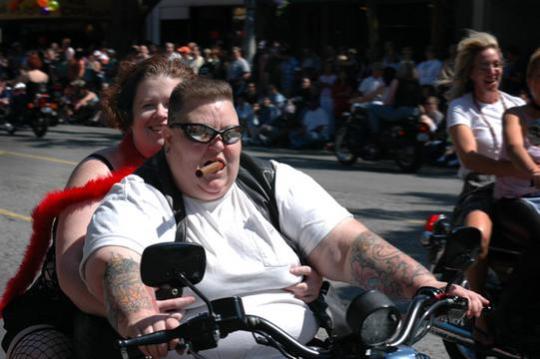marxist-leninist - gen x - psych abolition - harm reduction - community survival
Don't wanna be here? Send us removal request.
Text
what do you mean you havent used mindfulness techniques to accept the state of the torture labyrinth as is yet. its like youre not even trying
23K notes
·
View notes
Text
fuck you hostile architecture fuck you requiring proof of someone’s address fuck you removing benches fuck you street sweeps fuck you pay-to-unlock bathrooms fuck you anti-encampment laws fuck you parking meters fuck you homeless shelters/hostels that make you pay, that have a cap on the amount of personal belongings you can have, that have rampant unaddressed abuse fuck you anti-homeless laws fuck you police fuck you fuck everything that criminalises being homeless
37K notes
·
View notes
Text
also fucked up how AA is like "if you ever drink again its all over for you! one beer and you're instantly an alchy again" its a great way to establish a self-fulfilling prophecy that sends people right back to the meetings and shit. one of my biggest milestones in recovery is the fact i can chill and have a couple beers or a glass of wine and not go out of control. obviously it looks different for everybody, which is exactly the problem with orgs like AA and NA that drill you with the idea you are powerless to your addiction and there's nothing you can ever do about it besides pray or call some guy and you need to feel bad and guilty for being an addict.
8K notes
·
View notes
Text

#memes#dank memes#dumb memes#online left#leftbook#chronically online#internet communists#neoliberal left is anti-left#neoliberal left
0 notes
Text

#memes#new memes#dank memes#rizz#charismatic leader#alienation#belonging#aloneness#late stage capitalism#neoliberal capitalism#neoliberal competitive individualism#neoliberal society#individualism#social connection#human bonds#lack of community#exploitation#manipulate manifest masturbate#power seeking#void#vulnerability#outcast#loneliness#weird memes#meme#wojak#in search of belonging#neoliberal sociopolitical culture
1 note
·
View note
Text
me walking into someone’s life as the best temporary person that they’ll ever get
99 notes
·
View notes
Text
you drive through Suffolk Virginia and you think “this place is Suffolk-ing sad.” you drive through Norfolk Virginia and you think “there is Norfolk-ing way my fellow drivers are serious.”
155 notes
·
View notes
Text

#actually autistic#abuse them by saying what they did#autistic adult#alienation#psych abolition#disability justice#disunderstood#disinterpreted#new memes#memes
0 notes
Text
I love birdwatchers they’re like “I just saw my ALL TIME FAVORITE BIRD SPECIES! I’ve always dreamed of seeing one in the wild! I am ECSTATIC!” and it’s the most boring looking little brown bird you’ve ever seen.
51K notes
·
View notes
Text
fucking amazing trying to be pro-drug on this site while half the userbase believes the only people who should be allowed to smoke tobacco are single childless homeowners in detached properties who exhale directly into the vacuum cleaner and then kill themselves to avoid burdening the health system
5K notes
·
View notes
Text

i can’t believe i forgot that MFer was a chipmunk
(and that bird is a fkn chickadee, btw)
#memes#new memes#fresh memes#dank memes#kingpin#prison yard#illicit#contraband#weird memes#turf war#chickadee#chipmunks#he’s a chipmunk not a squirrel#i forgot#I was thinking about how my dad hated squirrels#hated them with violence rage because#they kept eating all the birdseed#that was for the BIRDS#i think Americans wake up on the morning of their 65th birthday#and it’s like the first time they ever noticed birds#from that day on they are lookin out the window#worried about who’s getting more birdseed#let the squirrels have some birdseed ffs#put some more birdseed out there fer cryin out loud#so anyway#that’s why i choose squirrel#who is actually a chipmunk#i’m sorry bud#you’re chippermunker#huh?
0 notes
Text
i hate it when scientists try to explain why Mel’s Hole is a geological impossibility.
NO SHIT, IT’S MAGICAL YOU SONUVABINCH
#Mel’s Hole#memes#new memes#fresh memes#dank memes#urban legends#paranormal#art bell#supernatural#u.s. government#wombat sanctuary#fetal seal#intelligent human like eyes#basque shepherds#warm ice#storytelling#a big hole#bottomless hole#jack booted thugs#Mel Waters#Coast to Coast AM#sheep’s tumor fetal seal#his oncologist was shocked#no sign of cancer#Ellensburg#TerraServer
1 note
·
View note
Text
I don't agree with the framing of calling every agent of power (doctors, social workers, psychiatrists, even teachers) a cop, not because I think that they don't enforce the same rules or havent also signed up to punish deviance and construct normality, but because imo it's not productive to constantly have to refer to cops as the standard of the most violent state-serving profession. all these jobs (and many variations within them) play different roles that were established in different ways and flattening it by calling everyone a cop limits the ways in which you can discuss their mechanisms
21 notes
·
View notes
Text
it seems the anti-football post made some people really mad. I just want to double down and say that I hate football and I wouldn’t wish playing football on my worst enemy <3 football is an evil ass blood sport and its diehard fans act like they’re rabid. fuck football as a game and especially fuck varsity football. noooo nuance idgaf about ‘camaraderie’ or ‘the team spirit’ or ‘sense of accomplishment’ or whatever. am stoned going on this posting spree but I’m right about this. high impact sports are bad for children. and adults. but especially children who are not being paid for this and will deal with the consequences for the rest of their lives.
4K notes
·
View notes


